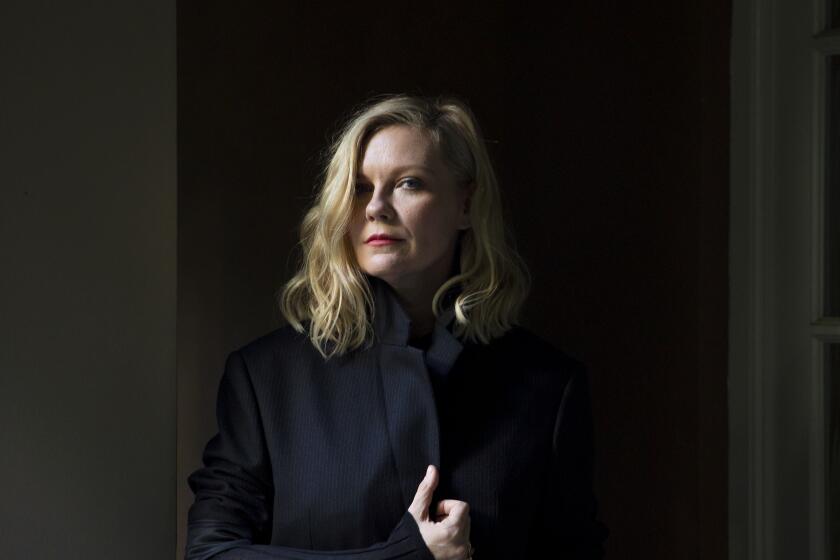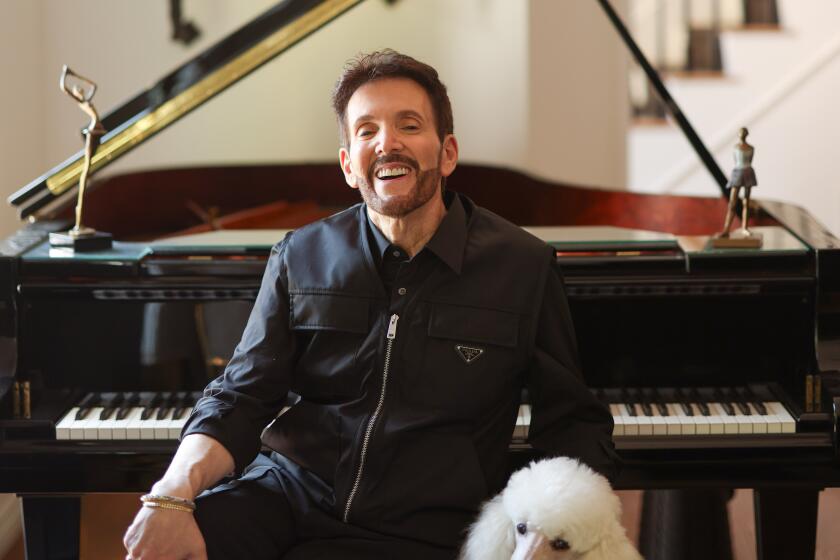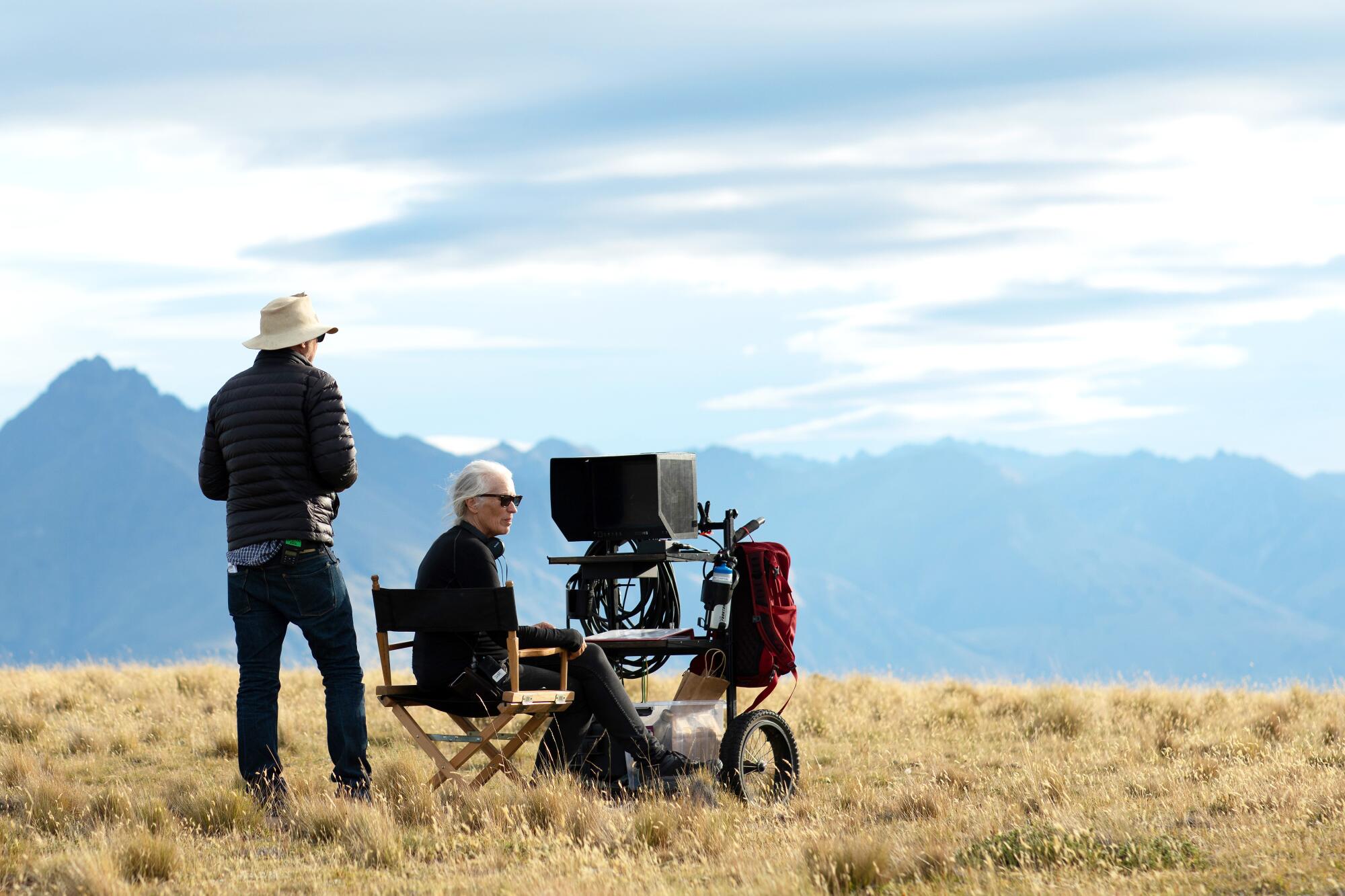
It’s a warm midafternoon in the vest-pocket piece of Beverly Hills greenery known as Will Rogers Memorial Park. The ducks are on the pond, the egret is looking regal, and some high school film students are busily getting their act together, oblivious to the fact that one of the world’s preeminent directors is sitting on a nearby bench, working on getting comfortable in the sun.
“I’m a filmmaker,” Jane Campion says, adjusting a pair of dark glasses. “I like to be a little blinded by the light.”
The writer-director is far from her native New Zealand at the behest of Netflix, distributors of Campion’s latest work, the extraordinary “The Power of the Dog,” which has been in limited theatrical release since Nov. 17 and begins streaming today.
The film stars Benedict Cumberbatch in the role of his career as the terrifying Phil Burbank, a corrosive, charismatic rancher in 1925 Montana. Campion’s first theatrical feature since 2009’s marvelous “Bright Star,” “Power of the Dog” is already garnering the same kind of awards attention as the director’s 1993 Cannes’ Palme d’Or-winning “The Piano,” which earned her both a directing nomination and a screenwriting Oscar.
To see “Power of the Dog” is to revel in an exceptional filmmaker working at the peak of her powers, to feel that Campion must have grasped the entire project whole from the get-go. But to hear the director describe how Thomas Savage’s 1967 novel was turned into a feature is to understand that it didn’t go that way at all — that the process was in fact marked by accident, uncertainty, hesitation and doubt.
“I’m an old dog in the game,” Campion says, smiling. “I’m careful about the bones I care to chew on. I want something with a deep enough scope, something that will hold up.”
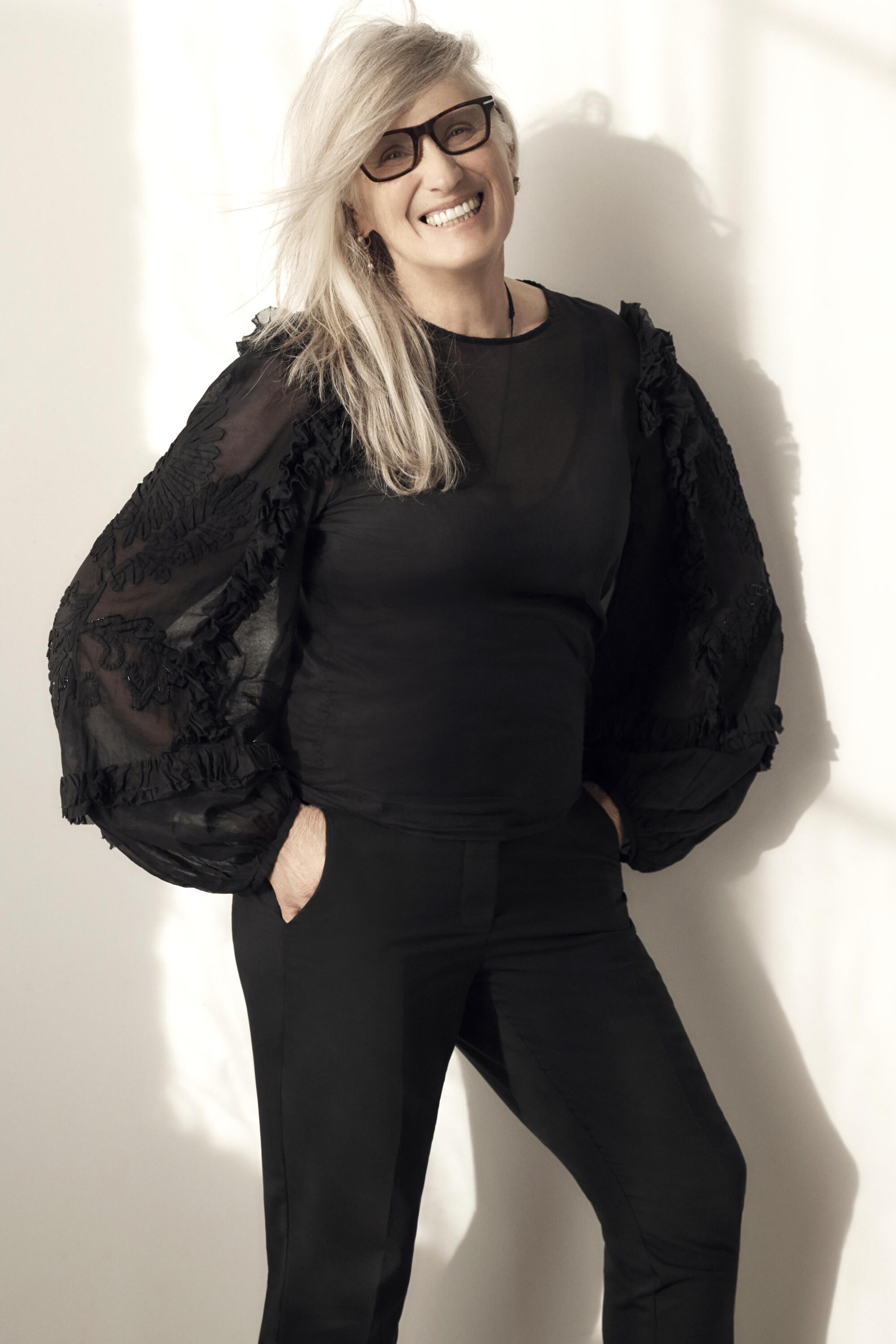
When the director says that “it was really happenstance for everyone connected to the book,” she is very much including “Power of the Dog’s” Canadian producer, the veteran Roger Frappier, who was killing time in Paris when he read an article that mentioned that the Savage volume, a book he’d never heard of, was actor Gérard Depardieu’s favorite novel.
“He went out and bought a copy,” the director relates, “lay on his bed and read it and successfully pursued the rights.”
As for Campion, she was given the book by her stepmother, Judith Campion, who is thanked in the closing credits. “She’s a great reader. We often swap books, and she sent it to me out of the blue.”
While Campion finds “most novels hard to finish — nothing comes to a real crisis, I lose confidence in them,” “Power of the Dog” was different. “It was such a tight little beast I couldn’t stop thinking about it. I was actually haunted by it. I trust my psyche — what I fall in love with is the thing for me.”
Kirsten Dunst, Jesse Plemons and Kodi Smit-McPhee co-star in this superlative Netflix adaptation of Thomas Savage’s novel.
Still, the situation was far from preordained. “I’m stepping toward it” was all she would commit to when asked by her agent whether her curiosity about rights meant she wanted to make the film. “I have to be pushed to the plank because I know, once I get ignited, I’m going to work so hard. I fear that work, but it’s also exhilarating.”
The rights were already with Frappier, but it just so happened that she and the producer would be at Cannes at the same time. She asked for a meeting, only to be told that “he was in deep negotiations with someone else, and my chances were terribly unlikely. My agent didn’t think it was worth meeting, but I thought it would be fun to have a chance to discuss the book.”
In a fortuitous twist, “Frappier told me he’d thought he had someone else, but the lawyer was trying to improve the deal. He said, ‘You’re really lucky, it could be you.’” And so it turned out to be.
Still, Campion initially felt daunted by the prospect of taking on a book that had previously been approached without success. “It had been optioned five times,” she remembers worrying. “What am I doing here, what have I got, who am I to think I could do that? I never really answered that, but I feel I am the right girl for it.”
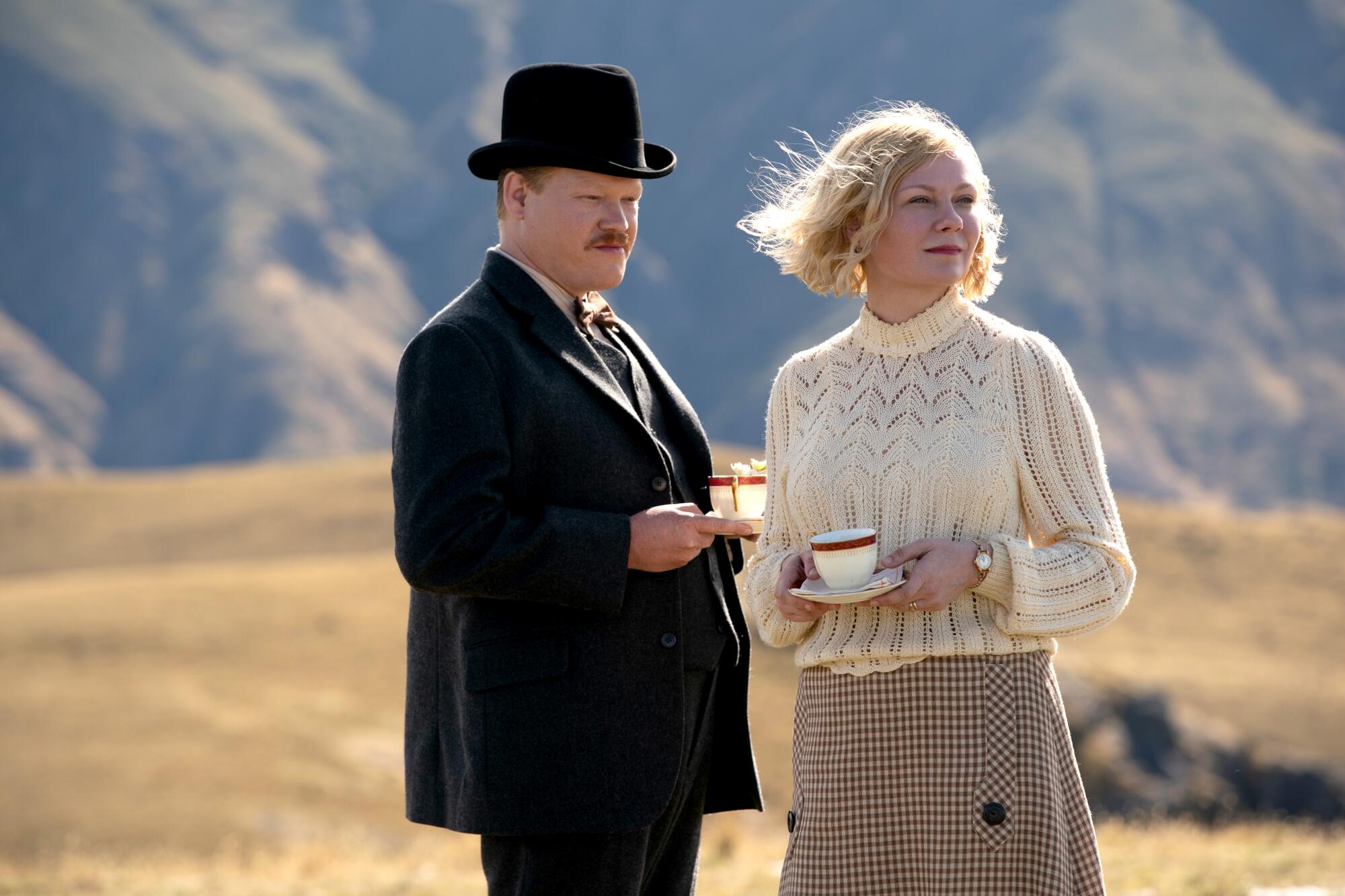
Savage’s novel is an intensely emotional four-hander set against the physical vastness of a sparsely populated Montana.
The story details what happens to the close but volatile relationship between two siblings when charismatic Phil’s phlegmatic brother, George (Jesse Plemons), impulsively marries the quiet widow Rose (Kirsten Dunst), whose sensitive teenage son, Peter (Kodi Smit-McPhee), becomes a frequent ranch visitor.
While the interplay and performance of each member of this quartet are key, Cumberbatch’s Phil is the film’s sine qua non. And though the actor’s cerebral roles in “The Imitation Game” and TV’s “Sherlock” do not bring the savagely masculine Phil to mind, Campion says flatly, “I had my eye on him.”
“He’s an amazingly talented person. He’s a gentle person, really, but he’s got swagger, and he goes all the way. He’s also courageous, and, because the part was a long way from the hole for him, he knew he had to give it a lot of focus and attention or he would end up sadly wrong.”
So Cumberbatch spent considerable time in Montana learning cowboy skills — riding, braiding rope, rolling cigarettes, even how to castrate a bull.
More than that, Cumberbatch and Campion reached the joint decision that the actor would stay in character the whole time he was on the set. “Both Ben and I thought it would be beneficial,” the director explains. “Sometimes he would even argue with me as Phil, which was a little annoying. But whatever it takes, we’ll try it.”
Part of the reason for this, Campion explains, is that, in real life, her star is “quite a people pleaser who wants to get everyone on side. I told him he had to say ‘no’ 10 times a day — not say ‘thanks,’ not say ‘sorry.’”
In line with this strategy of eliminating distractions and protecting the performance, Campion decided to ban cellphones on the set. “It was the rule from the beginning. People are always wanting to take selfies with the star. If you’re not clear from the beginning, it’s a source of hurts and humiliations.”
Though Campion, like her star, spent time in Montana, making the film there proved a bridge too far. “I felt sick about not shooting there; it was my idea for a long time,” she relates. “But then budget reality hit.”
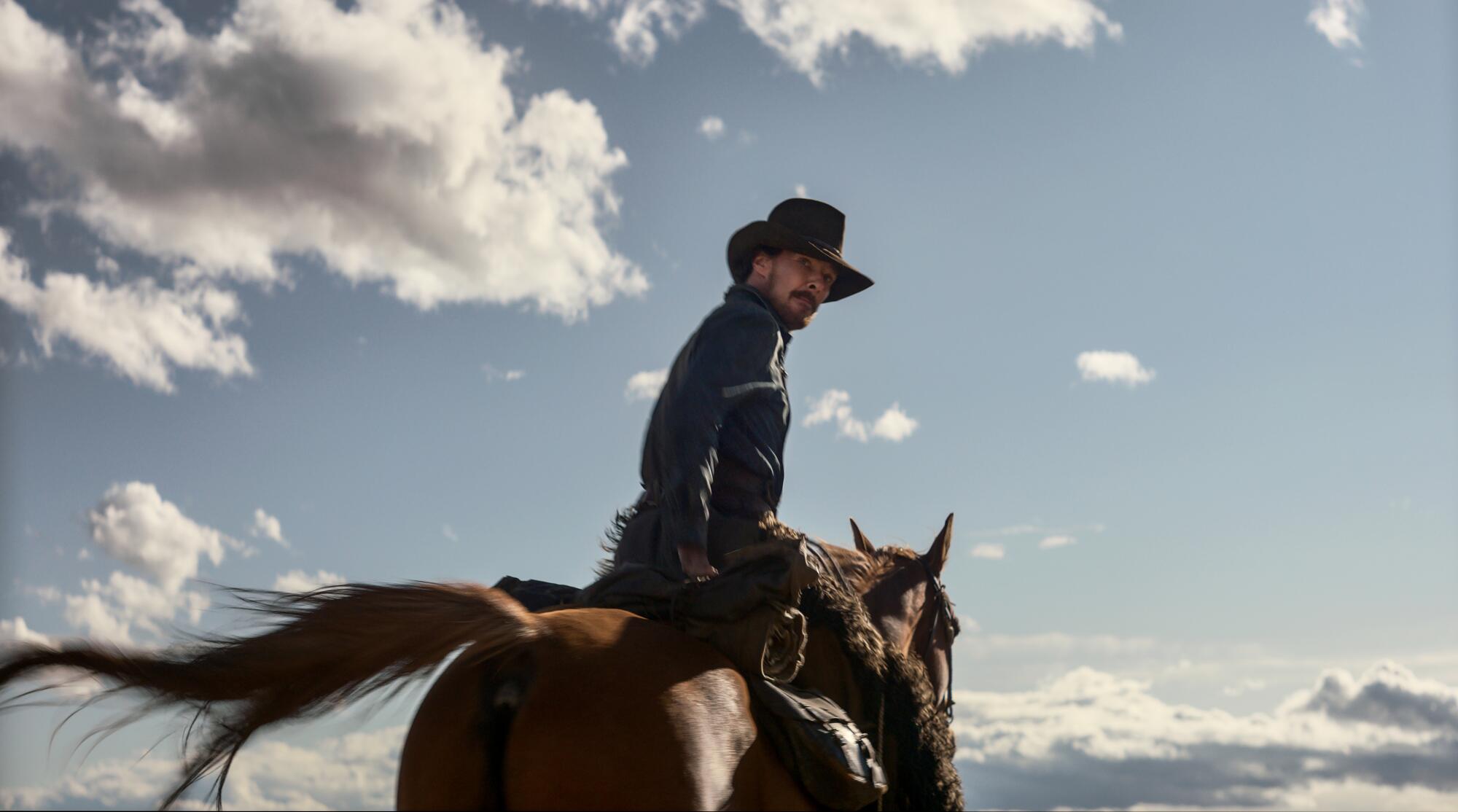
The heart of the problem turned out to be physical locations. “A lot of fantastic old ranch houses had been renovated as resorts. Or turned into second homes that were half authentic, half fabulous kitchens. We looked and looked, but we didn’t find anything, and the cost of building the ranch house and a fake town there turned out to be incredibly expensive items.”
When New Zealand’s South Island was thought of as a less expensive alternative, Campion’s team tried an experiment. “We showed New Zealand photos to our local scout and asked if he knew where it was. He said he knew the area: It was in the state, just a bit further south. That perked us up. We thought, ‘If we can fool a scout, we’re in good shape.’”
While in Montana, Campion did visit the ranch in the southwest of the state where novelist Savage had grown up and where he had theoretically seen the dog-shaped mountain formation that is key to the novel’s plot.
“His family said, ‘We’ve all looked, it’s not here,’ and my heart sank,” Campion relates. “But just as we were leaving, I saw this massive rock formation that does look like a pouncing dog. I did feel like it was a blessing for me and the project from Tom Savage.” The shooting of “Power of the Dog” in New Zealand was not without crises, the most major being the three months filming was halted because of COVID-19.
“When the pandemic came, we’d just finished exteriors and had three or four weeks to go. We didn’t know if we’d be able to get back up or not after the shutdown. But Netflix stepped up and used their muscle to protect the cast and crew.”
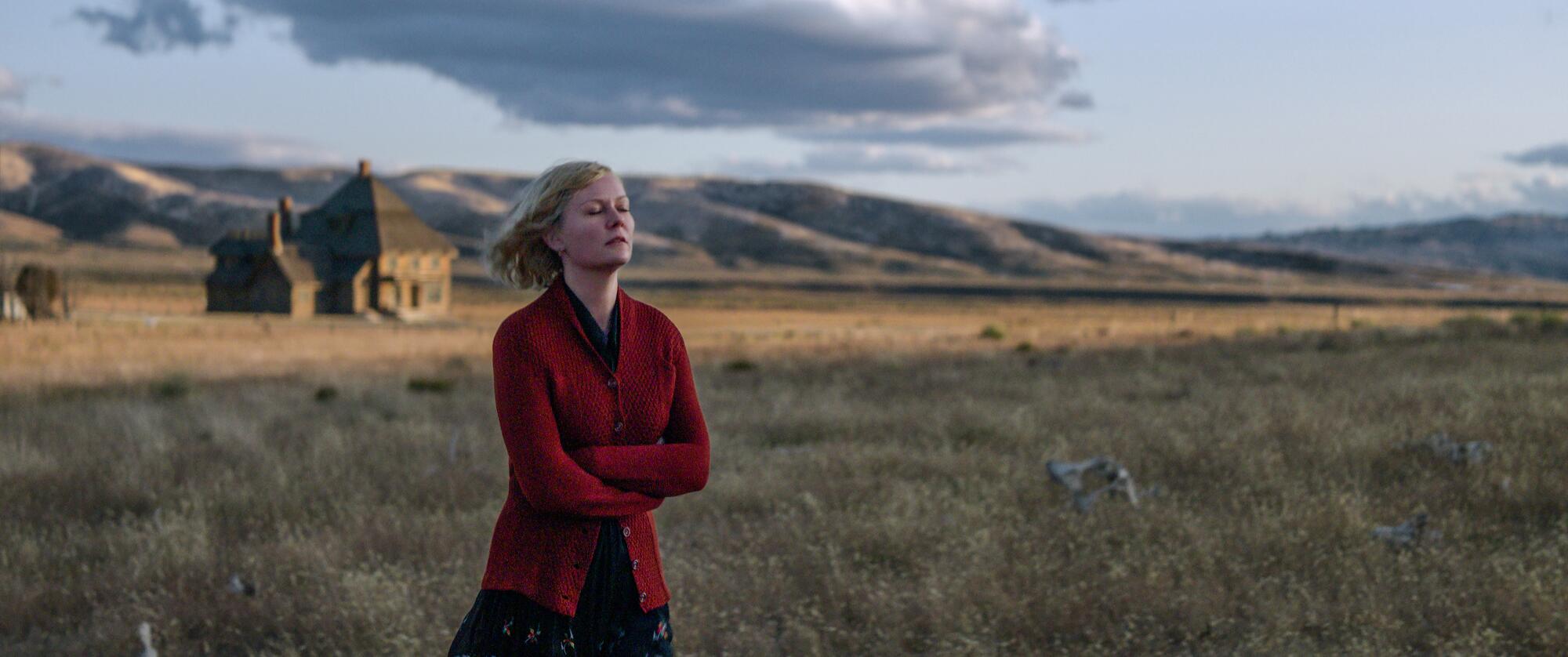
“Netflix is not what I would have wanted historically, but they’re a little like the Medicis of our time,” the filmmaker continues. “The people at the top do love cinema; they want to see good things. When you’ve got a lot of money, beauty counts.”
The decision to go with Netflix as a distributor was not the only piece of uncharted territory for Campion. For one thing, “Power of the Dog” turned out to be the director’s first feature with a male protagonist, something that was not a conscious decision but a choice she felt able to make because of changes in the world.
“Why would I now go in this direction?” she posits. “For the first time in my life since my time in Cannes with ‘The Piano,’ there are so many more women in this space doing some of the best work out there. We’ve crossed over the line, and everyone wants to be on our side. No one is saying, ‘That’s too hard for women.’ The Berlin Wall is down, and it’s not coming back again.”
Kirsten Dunst discusses her dream of working with Jane Campion, acting opposite her partner Jesse Plemons and surviving depression.
Also different for Campion since she started out are some of the ways she approaches her work. For one thing, she says, especially after her experience directing the series “Top of the Lake” for two seasons, “I learned from TV work what collaboration can be.”
Singling out the superb contributions of her “Power of the Dog” co-workers including cinematographer Ari Wegner (who did a year of preproduction with Campion), production designer Grant Major (an Oscar winner for his “Lord of the Rings” work) and editor Peter Sciberras (a frequent David Michôd collaborator), Campion says what’s changed for her is that “I listen better. I’m not so insecure. When I began, I could barely hear other people’s opinions out of fear of not being able to hear my own.”
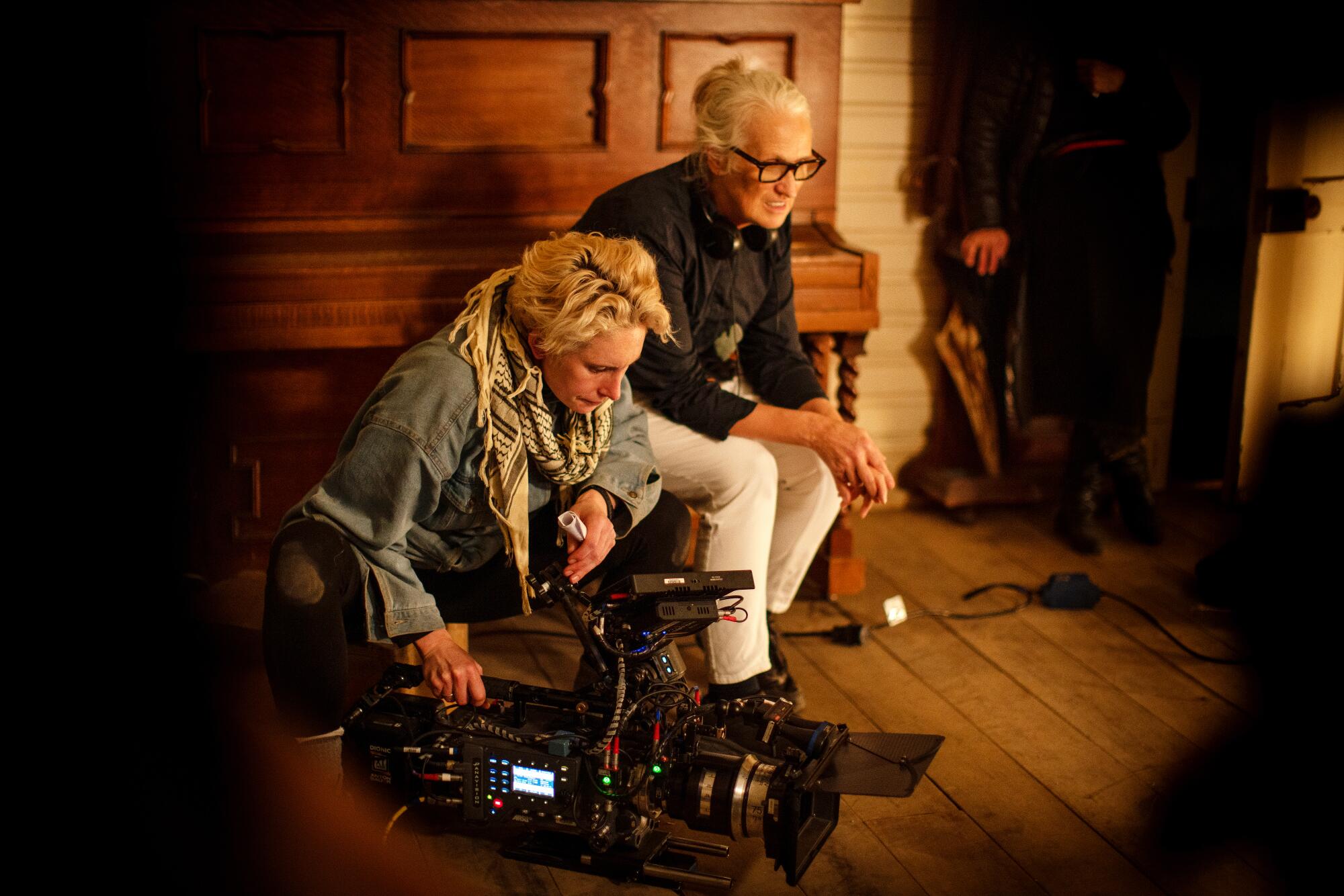
More than that, Campion says she is at a place in her work where “I don’t want to manipulate people. Earlier, I wanted to funnel them into a place where they had no choice, and people didn’t like that.”
Seeing French director Robert Bresson’s films like “A Man Escaped” (“so simple, so tense, you believe every moment”) were an influence toward another direction for Campion. “There’s a sense of deeper trust when you’re not being manipulated. I want you to have the story, to have you do what you will with it.”
The Beverly Hills sun that was so bright is going away, the high school filmmakers are long gone, and Campion turns to the time she spent with novelist Annie Proulx, who wrote a laudatory afterword for the 2001 paperback edition of the Savage novel that jump-started renewed interest in the book.
“Annie said her 60s and 70s were a great age for her. There’s a depth of knowing — call it wisdom if you like — that you can’t get cheaply,” recalls the 67-year-old director.
“It goes so quickly. Time is limited on the planet. I really do think about the next 20 years, where do I want to put my focus? At this point in my career, I want to do something that surprises. I want to sing a song that’s really sung.”
By any measure, that is exactly what Jane Campion has done with “The Power of the Dog.” And then some.
More to Read
Only good movies
Get the Indie Focus newsletter, Mark Olsen's weekly guide to the world of cinema.
You may occasionally receive promotional content from the Los Angeles Times.

